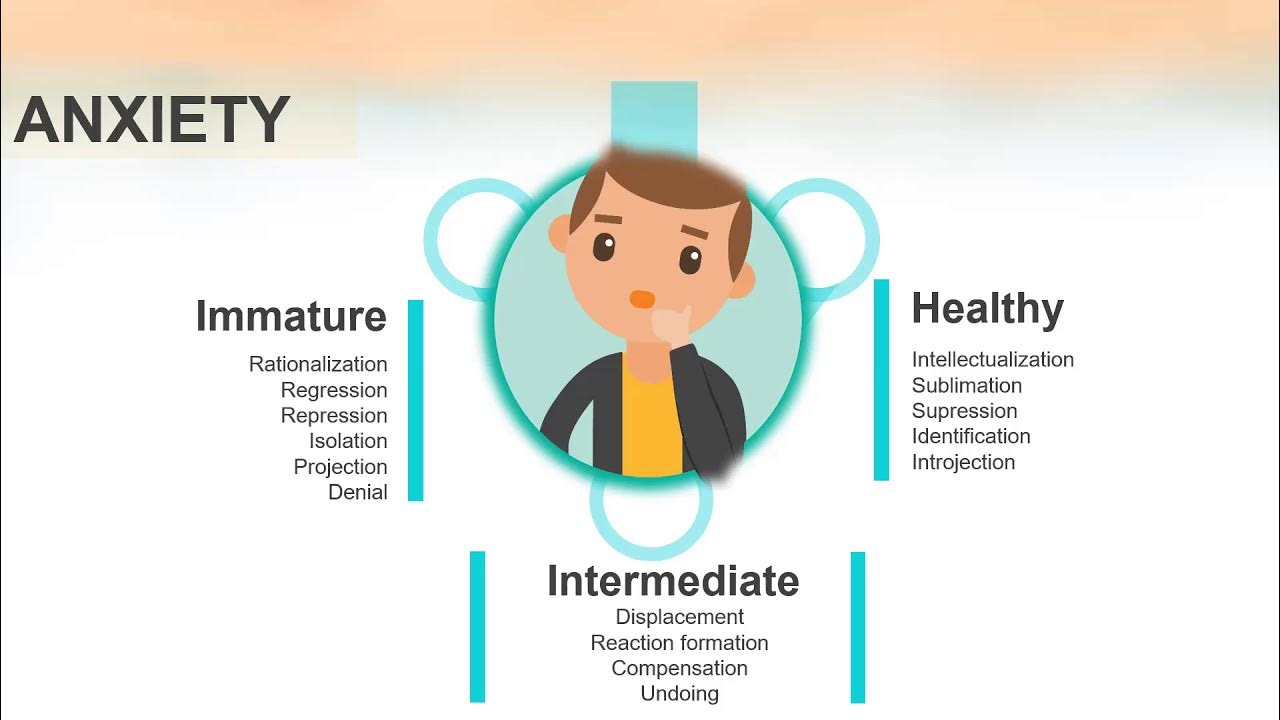What's the best way to cope with stress? Approach vs avoidance
Summary
TLDRThis video explores coping strategies, emphasizing the superiority of approach coping over avoidance. It defines coping as efforts to manage stress when demands exceed resources. Studies show approach coping, which includes active problem-solving like time management and seeking support, correlates with better mental health and life satisfaction. In contrast, avoidance coping, such as substance abuse or skipping school, is linked to lower academic performance and increased distress. The presenter advocates for adopting approach strategies, illustrating their benefits through personal anecdotes and a reference to a short animated film on stress management.
Takeaways
- 🔍 Coping is defined as a person's efforts to manage demands that are appraised as taxing or exceeding available resources.
- 📈 Stress occurs when demands exceed resources, leading to various types of stress such as financial or academic.
- 🧠 Approach coping involves actively dealing with stressors, while avoidance coping involves efforts to distance oneself from stressors.
- 📊 Research indicates that approach coping is generally more effective and is associated with better mental health outcomes.
- 📚 A study on IB and AP students revealed that higher stress levels in these students correlated with poorer mental health, but positive appraisals and good family communication were linked to higher life satisfaction.
- 📈 Approach coping strategies such as time management, reappraisal, seeking support, spirituality, and relaxation are contrasted with avoidance strategies like skipping school, excessive sleeping, dropping classes, and substance abuse.
- 📉 Avoidance coping is correlated with lower GPA, lower exam scores, and higher psychopathology, suggesting it's less effective for managing stress.
- 💡 Approach coping can provide more resources to manage stress and increase one's sense of control, which is beneficial for mental health and success.
- 🎓 The video encourages viewing stress as a challenge to be dealt with rather than something to be avoided, emphasizing the importance of personal sacrifices for success.
- 🔗 The concept of approach versus avoidance coping can be applied to health psychology topics, such as risk and protective factors for health problems.
Q & A
What are the two general categories of coping strategies discussed in the video?
-The two general categories of coping strategies discussed are approach coping and avoidance coping.
Which type of coping is generally regarded as better according to psychological literature?
-Approach coping is generally regarded as the better strategy compared to avoidance coping.
What is the technical definition of coping mentioned in the video?
-Coping is defined as a person's efforts to manage demands that are appraised as taxing or exceeding resources.
What is the relationship between stress and resources as explained in the video?
-Stress occurs when the demands exceed the resources a person has available.
What was the finding from the study on IB students regarding stress and mental health?
-The study found that higher stress in IB students correlated with poorer mental health and lower life satisfaction.
What factors were found to be associated with higher life satisfaction among IB students?
-Positive appraisals and good family communication were associated with higher life satisfaction among IB students.
What does approach coping involve, as described in the video?
-Approach coping involves actively dealing with the stressor, which can include time management, reappraisal, seeking family support, academic support, spirituality, and relaxation.
What are some examples of avoidance coping strategies mentioned in the video?
-Examples of avoidance coping strategies include skipping school, sleeping or napping instead of doing work, dropping classes, and substance abuse.
What are the outcomes associated with approach coping as per the study discussed in the video?
-Approach coping is correlated with higher life satisfaction, lower psychopathology, and less burnout.
What are the outcomes associated with avoidance coping as per the study discussed in the video?
-Avoidance coping is correlated with lower GPA, lower exam scores, and higher psychopathology.
Why is approach coping considered more beneficial than avoidance coping?
-Approach coping is considered more beneficial because it provides access to more resources, increases one's sense of control over stress, and is associated with better mental health outcomes.
How does the video relate to personal sacrifice and coping with stress?
-The video relates personal sacrifice to coping with stress by showing how making small daily sacrifices, like getting up early or maintaining a healthy lifestyle, can lead to better stress management and success.
Outlines

Esta sección está disponible solo para usuarios con suscripción. Por favor, mejora tu plan para acceder a esta parte.
Mejorar ahoraMindmap

Esta sección está disponible solo para usuarios con suscripción. Por favor, mejora tu plan para acceder a esta parte.
Mejorar ahoraKeywords

Esta sección está disponible solo para usuarios con suscripción. Por favor, mejora tu plan para acceder a esta parte.
Mejorar ahoraHighlights

Esta sección está disponible solo para usuarios con suscripción. Por favor, mejora tu plan para acceder a esta parte.
Mejorar ahoraTranscripts

Esta sección está disponible solo para usuarios con suscripción. Por favor, mejora tu plan para acceder a esta parte.
Mejorar ahora5.0 / 5 (0 votes)






